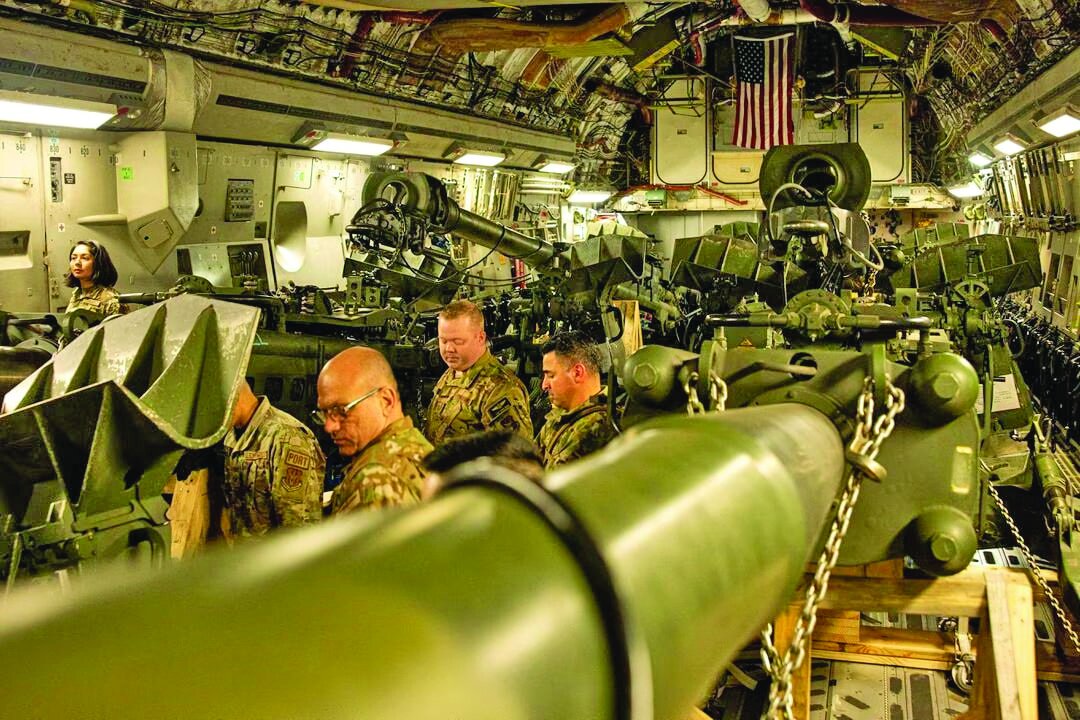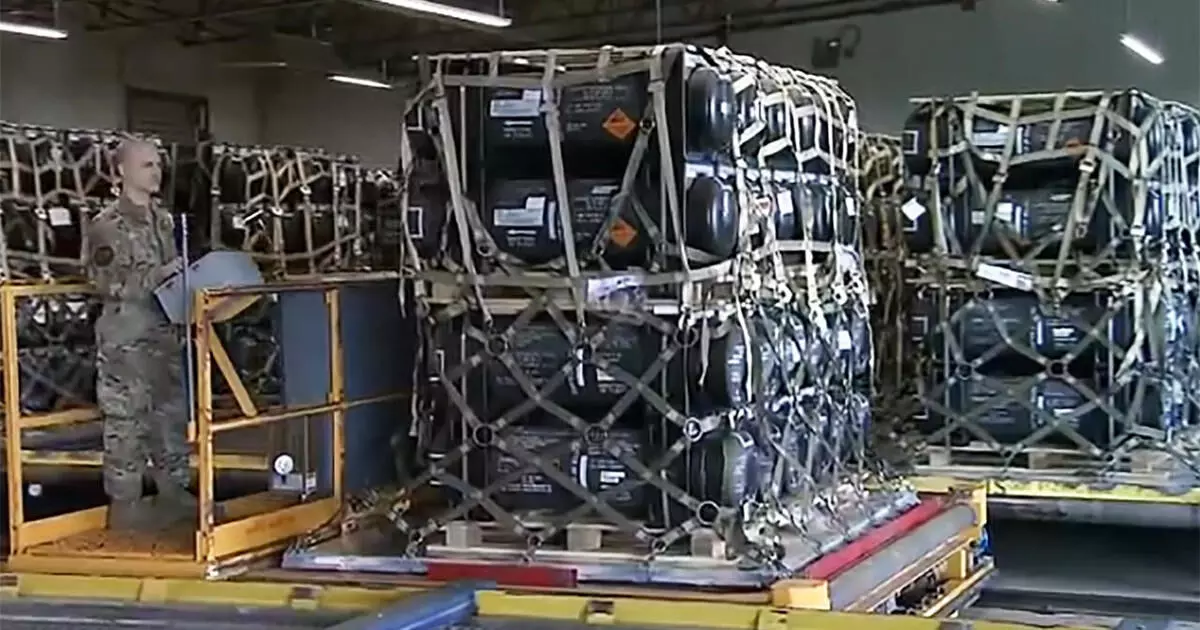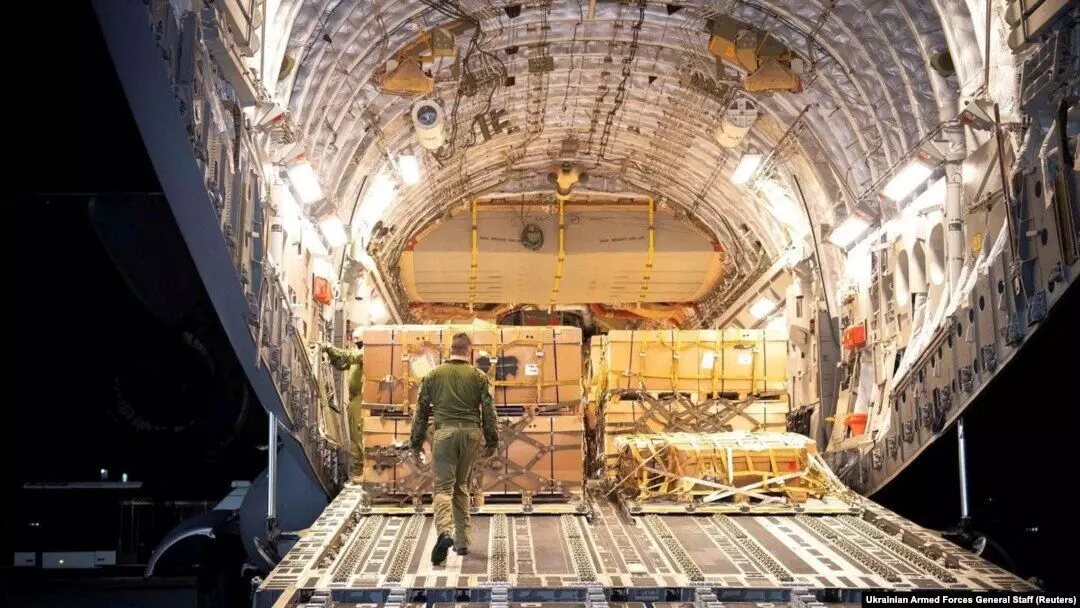
The arms industry set for a bonanza
text_fieldsImage for representation only
More than a decade after leaving the Élysée Palace at the end of his term in office, former French President Nicolas Sarkozy is once again in the news. He is making political waves in France and abroad on the release of his second volume of memoirs, Le Temps des Combats (The Time of Battles ). The international row is over his comments on Russia and Ukraine. He stated that NATO is fighting a war against Russia without fighting it. Clearly they are not engaged on the ground, but are delivering weapons to one of the belligerents, he writes. “Russia will remain our neighbor whether we like it or not. We must find ways and means to re-establish neighborly, or at least calmer, relations".
According to him, Ukraine must pledge to remain neutral and Nato could at the same time affirm its willingness to respect and take into account Russia’s historic fear of being encircled by unfriendly neighbors. He described the return of Crimea to Ukraine as “illusory”. These comments by Sarkozy have given a new twist to the Ukraine war.
In the New Yorker, journalist Keith Gessen wrote a piece over whether and when Washington should pursue negotiations in Ukraine. He uses the example of Samuel Charap, a researcher at the RAND Corporation who argues to seek an endgame to the war. According to him, there must be an end to the war sooner rather than later by freezing the conflict in place and working to rebuild the large part of Ukraine that is not under Russian occupation. In his State of the Union Address, President Biden had promised that there would be no US boots on the ground in Ukraine. But, three months later, New York Times reported that "CIA personnel have continued to operate in the country secretly, mostly in the capital, Kyiv directing much of the vast amounts of intelligence the United States is sharing with Ukrainian forces." It added that other NATO countries, including the U.K, France, Canada, and Lithuania have commandos operating in Ukraine.
This revelation exposed Biden’s lie that America would not deploy US troops in Ukraine. In his address to the UN General Assembly Biden promised the world that he was "opening a new era of relentless diplomacy". But, what happened was the opposite: he opened an era of threats, sanctions, snubbing talks, and refusing diplomacy.
As the war in Ukraine entered the second year, we could find only one clear winner- the US military-industrial complex. Ukraine was unable to hold out against Russia without American weapons. As the conflict rages on, the EU Officials are making complaints that the US is profiting from the war through weapons sales and gas prices. Defence budgets are booming worldwide as countries replenish stocks sent to Ukraine and try to boost military capabilities in the face of mounting security threats. Ultimately, the US defence contractors are the real winners, set for a bonanza!
A country's military industrial complex has the potential to exert influence over the government policy. There are legislators who provide support and benefit from their partnership. In the US, it is observed that a wider vested interest is keeping the military industry thriving that are dependent on defence contractors for jobs. Charles Miller at ANU's school of politics and international relations says that about 800,000 jobs are directly tied to the sector. He told the ABC that Ukraine was found unable to sustain its counteroffensive against Russia. And it has not recovered most of the territory it lost in 2022,and Putin’s Russia is engaged in a major military buildup. Consequently, Ukraine faces a bitter war of attrition against steadily growing Russian forces. Over-optimistic rhetoric aside, the United States and its strategic partners recognize this. The immediate need for Ukraine is to win the fight which demands sustained military and economic support for years to come. NATO has to make a major effort to build its forces massive enough to deter Russia from any further military adventures. The course of the war and its outcome will have a major impact on Russia’s nuclear build-up, its ties to China, and its relations with states outside Europe. Because of throwing billions of dollars of military aid into Ukraine, contracts have been rolled out thick and fast to speed up weapons production and fill supply gaps.
Lockheed Martin, Raytheon, Boeing, and Northrop Grumman - all from the US - reaped rewards as the top contractors. Those who possess wealth naturally gain access to potential power. This is actually the plutocracy that creates barriers to participation in politics and political life that can be met only through the possession or expenditure of significant wealth. This is what happens now in democracies!
Now, the war has shifted to Niger. The coup in Niger, which occupies the headlines in most parts of the world, is not a coup against democracy as currently being made out by the Western media, but rather a coup against hunger, poverty, corruption, nepotism, plundering of wealth, and French and American hegemony. People of Niger are celebrating it as a day of liberation, victory, and emancipation from the clutches of Western colonialism. Agence France-Presse reported that they rallied around the coup leaders cheering them in their victory. More than 30,000 residents of the capital, Niamey, raised the flags of China and Russia, their supporters. The majority of the people of Niger believe that the regime that was overthrown by the coup was not democratic, but tyrannical and corrupt, and a puppet in the hands of France and America. Mohamed Bazoum, the puppet ruler opened the country's lands to American and French military bases. Under the pretext of combating terrorism, the West is using African Sahel and Sahara region as an incubator for their colonial policies.
France, which supports and incites a military solution in Niger, may repeat the bloody Libyan scenario, and lead an African invasion to overthrow the military coup. It could act under the pretext of reinstating of a democratically elected constitutional president, Mohamed Bazoum. But, the Commander of the coup General Abdel-Rahman Tiani affirms that he is not against democracy.
He only opposes the French colonial domination and its plunder of the country's wealth and depriving its people of the resources, especially uranium, gold and phosphates. It is true that France has 1,500 soldiers on the ground in Niger backed by warplanes and drones, but this presence does not constitute a guarantee of its success in thwarting the military coup due to the support it enjoys from its counterparts in Mali and Burkina Faso, where they declared that any intervention in Niger would be tantamount to a declaration of war on them. They affirmed their army would confront it with all their might.
In a round table organized by the think-tank Chatham House London on the impact of military intervention in west Africa and in Niger, one of the leaders from the region stated that they kept avenues of communication open with the three military presidents as a courtesy. This creates an impression that there is no deterrence for military takeovers.
The implementation of the military intervention plan of the "ECOWAS" (Economist Community of West African States – of 15 states) system in Niger has flopped. Now, we are facing a fierce war of influence between the West, led by America on the one hand, and the Sino-Russian alliance on the other.
The problem is that Western countries, led by the United States, have not learned from their previous defeats that came as a result of their military interventions in Afghanistan, Iraq and Libya. They are still practising the same methods of domination and milking the wealth of peoples in Africa and the Middle East under various pretexts for military intervention, sometimes with the support of the loyal dictatorship on the one hand, and on another by opposing it and siding with democracy, as happened and is happening in Libya, Iraq, Syria. and now in Niger.


























